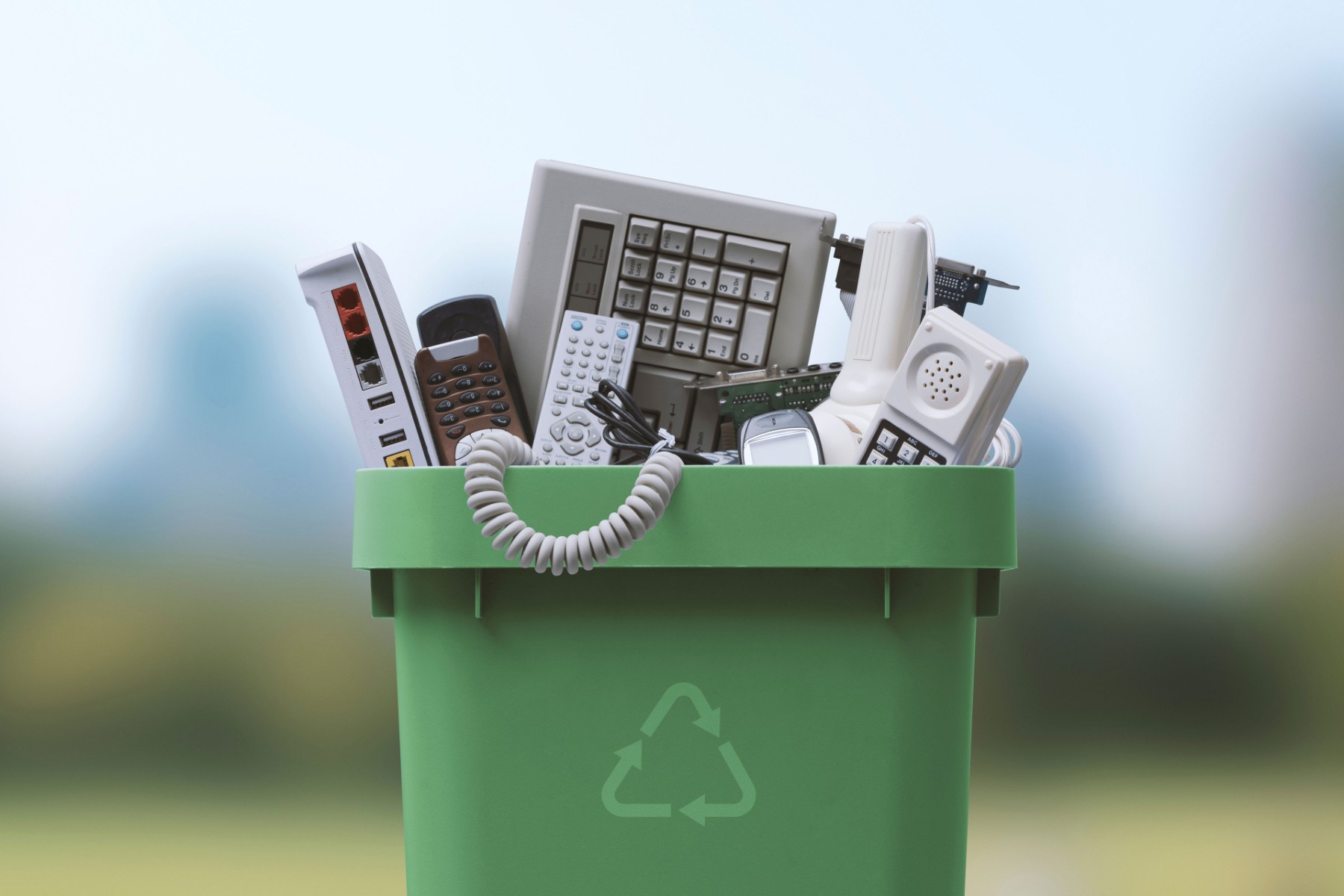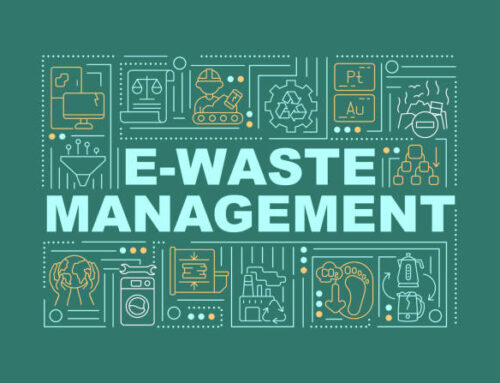
ESG-Driven Revolution Transforming E-Waste Recycling & Guiding Sustainable Transformation
Technology thrives today, but with it comes a pressing environmental
concern—electronic waste (e-waste). Picture the mountains of discarded devices, each
carrying the potential to harm our planet. Yet, hope emerges through responsible
e-waste recycling practices.
The Growing Need for E-Waste Recycling
As a major tech hub, India faces an urgent requirement for effective e-waste
management. Improper disposal can lead to environmental hazards and health risks
due to the presence of hazardous materials. The growing need for e-waste recycling
arises from the rapid surge in electronic consumption. Recycling e-waste reduces
pollution and enables the recovery of valuable resources, promoting a circular economy.
Moreover, e-waste recycling contributes to job creation and economic opportunities. By
embracing responsible e-waste recycling practices, Our Country can address the
pressing need to protect the environment, conserve resources, and build a sustainable
future.
The Role of E-Waste Recycling Companies
● Promoting Circular Economy: E-waste recycling company contribute to the
circular economy by recovering valuable resources from discarded electronics
and reintroducing them into manufacturing.
● Minimizing Landfill Waste: By recycling e-waste, these companies prevent
hazardous materials from ending in landfills, reducing soil and water pollution.
● Sustainable Resource Management: E-waste contains precious metals, rare
earth elements, and other valuable resources that can be extracted and reused,
reducing the need for raw material extraction.
In the ever-evolving landscape of waste management, it is crucial to explore innovative
approaches that address environmental concerns and foster social responsibility and
good governance. One such transformative approach is the integration of
Environmental, Social, and Governance (ESG) principles into e-waste recycling
practices. By adopting ESG-driven approaches, e-waste recycling companies in specific
regions have the potential to make a substantial impact on the environment while
contributing to the well-being of communities.
But first, let’s learn what an ESG is.
Environmental, Social, and Governance
It is a framework to assess an organization’s sustainability and ethical impact. Investors,
analysts, and stakeholders use the ESG criteria to evaluate a company’s performance
and practices beyond financial measures.
Key Factors of ESG
● It has roots in movements focusing on health and safety, pollution reduction, and
corporate philanthropy.
● ESG has influenced capital allocation decisions made by major financial services
firms and asset managers worldwide.
● The industry has seen the emergence of ESG specialists who support net zero
and carbon neutrality goals.
ESG Principles: A Game-Changer in E-Waste Recycling:
● Environmental Impact: ESG-driven e-waste recycling companies prioritize
sustainable practices to minimize the environmental impact of e-waste disposal.
● Social Responsibility: These companies focus on the well-being of their
communities, promoting awareness about the importance of e-waste recycling
and creating employment opportunities.
● Governance and Compliance: ESG principles ensure transparent and
accountable e-waste management, adhering to relevant regulations and
standards.
Leveraging ESG for E-Waste Recycling Success
● Collaboration with Stakeholders: E-waste recycling companies in India engage
with stakeholders such as government bodies, NGOs, and local communities to
foster sustainable practices and raise awareness.
● Technology and Innovation: Embracing advanced technologies enables
efficient sorting, dismantling, and recycling of e-waste, maximizing resource
recovery while minimizing environmental impact.
● Employee Health and Safety: ESG-focused companies prioritize the well-being
of their workers, providing proper training, protective equipment, and a safe
working environment.
The Future of E-Waste Recycling
● Sustainable Policy Framework: Governments in our country should establish
comprehensive policies and regulations to support ESG-driven e-waste recycling
initiatives.
● Public-Private Partnerships: Collaboration between e-waste recycling
companies, government entities, and technology manufacturers can create a
robust ecosystem for sustainable e-waste management.
● Consumer Awareness and Participation: Educating consumers about the
importance of responsible e-waste disposal and encouraging them to choose
certified recycling services will drive positive change.
Picture a future where rise to the challenges posed by the mounting tide of e-waste;
their landscapes transformed into beacons of green, sustainable practices. By
wholeheartedly embracing the Environmental, Social, and Governance (ESG) principles
in e-waste recycling, these regions can pave the way for a brighter tomorrow.
In this future vision, e-waste recycling companies become champions of change. They
understand that their actions hold the key to unlocking the true potential of ESG,
transcending mere compliance and unleashing a profound impact on the environment
and the communities they serve.
And let us remember the pillar of governance. These companies have become
exemplars of transparency, accountability, and ethical decision-making. They navigate
the regulatory landscape with finesse, ensuring compliance while driving continuous
improvement.
The power of ESG principles becomes a beacon of hope, guiding the way to a world
where e-waste is transformed into opportunities, discarded devices are reborn as
valuable resources, and the planet and its people thrive in harmony.
Together, we can unlock this vision. Together, we can embrace the power of ESG and
pave the way for a future that transcends the challenges of e-waste, creating a legacy of
sustainability for generations to come.



